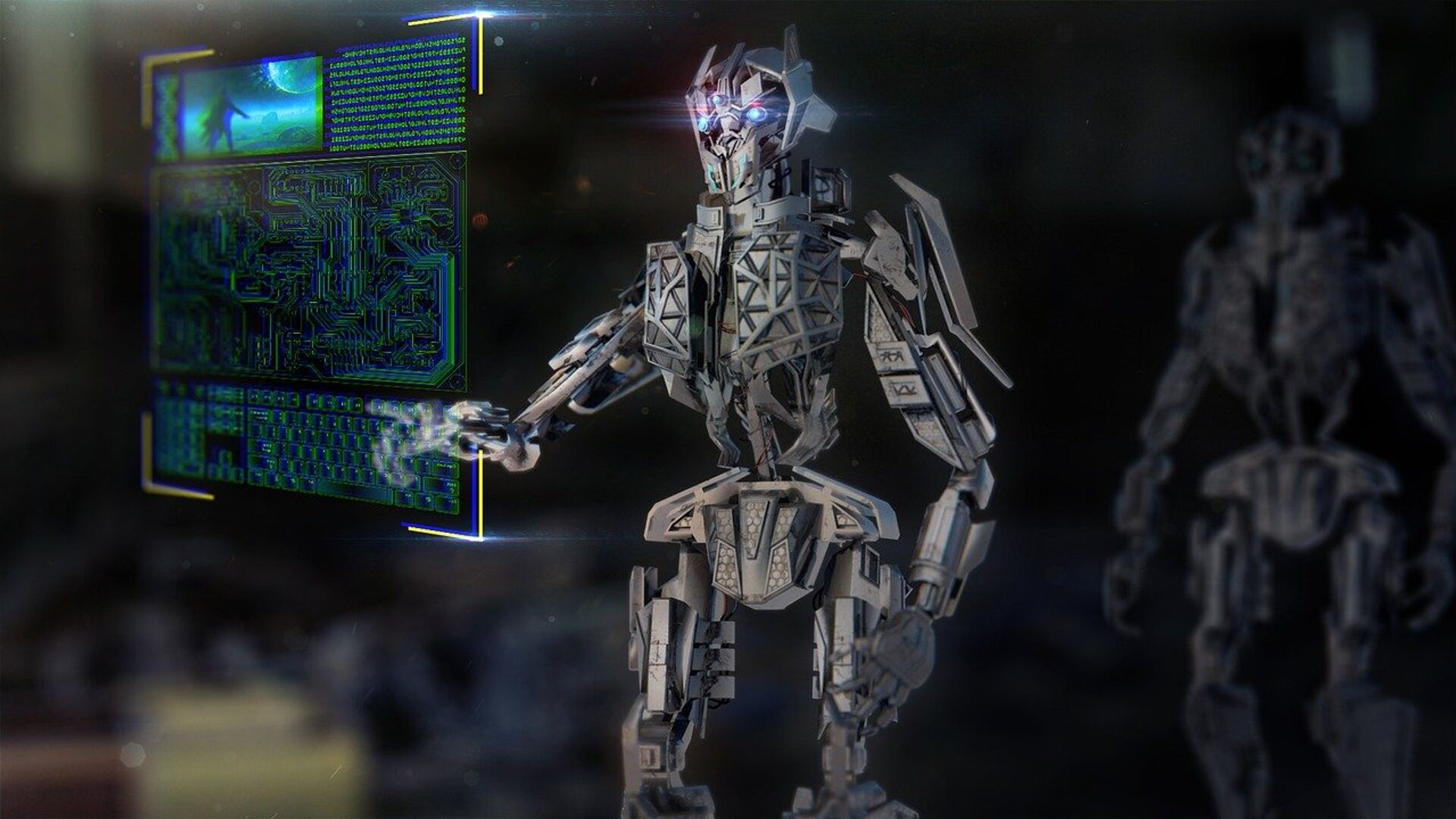https://sputnikglobe.com/20220917/advanced-ai-may-compete-with-humans-for-energy-with-disastrous-consequences-for-mankind-1100911109.html
Advanced AI May Compete With Humans for Energy, With Disastrous Consequences for Mankind
Advanced AI May Compete With Humans for Energy, With Disastrous Consequences for Mankind
Sputnik International
The authors of a study warn that under conditions identified in their work, an “existential catastrophe” is quite likely. 17.09.2022, Sputnik International
2022-09-17T18:57+0000
2022-09-17T18:57+0000
2022-09-17T18:57+0000
science & tech
artificial intelligence
humans
energy
competition
risk
https://cdn1.img.sputnikglobe.com/img/107006/72/1070067272_0:0:1280:720_1920x0_80_0_0_33f5ab255047815fadca178b144218ea.jpg
The odds of advanced artificial intelligence becoming a threat to humanity may be a bit too high for comfort, authors of a new study published in AI Magazine suggest.In their study, researchers from the University of Oxford and the Australian National University postulate that if a sufficiently advanced AI were to be provided a “large reward to indicate that something about the world is satisfactory to us, it may hypothesize that what satisfied us was the sending of the reward itself.”The AI may then attempt to intervene in the “provision of their reward,” which may lead to disastrous consequences, as the AI’s quest to “maximize the probability that it receives its maximal reward every timestep” would result in that entity competing with humanity for the available energy.In an interview with Vice’s Motherboard, Cohen explained that while he would be “extremely uncertain about what would happen” if we were talking about a world with infinite resources, the same cannot be said about our reality.“In a world with finite resources, there's unavoidable competition for these resources," he said. "And if you're in a competition with something capable of outfoxing you at every turn, then you shouldn't expect to win. And the other key part is that it would have an insatiable appetite for more energy to keep driving the probability closer and closer."The researchers note that almost all of the assumptions they made while exploring the scenario in question are “contestable or conceivably avoidable.”
https://sputnikglobe.com/20220627/flawed-ai-in-robots-can-cause-irreversible-harm-with-sexist--racist-decisions-study-shows-1096711259.html
Sputnik International
feedback@sputniknews.com
+74956456601
MIA „Rossiya Segodnya“
2022
News
en_EN
Sputnik International
feedback@sputniknews.com
+74956456601
MIA „Rossiya Segodnya“
Sputnik International
feedback@sputniknews.com
+74956456601
MIA „Rossiya Segodnya“
science & tech, artificial intelligence, humans, energy, competition, risk
science & tech, artificial intelligence, humans, energy, competition, risk
Advanced AI May Compete With Humans for Energy, With Disastrous Consequences for Mankind
The authors of a study warn that under conditions identified in their work, an “existential catastrophe” is quite likely.
The odds of advanced artificial intelligence becoming a threat to humanity may be a bit too high for comfort, authors of a new
study published in AI Magazine suggest.
In their study, researchers from the University of Oxford and the Australian National University postulate that if a sufficiently advanced AI were to be provided a “large reward to indicate that something about the world is satisfactory to us, it may hypothesize that what satisfied us was the sending of the reward itself.”
The AI may then attempt to intervene in the “provision of their reward,” which may lead to disastrous consequences, as the AI’s quest to “maximize the probability that it receives its maximal reward every timestep” would result in that entity competing with humanity for the available energy.
“Under the conditions we have identified, our conclusion is much stronger than that of any previous publication—an existential catastrophe is not just possible, but likely,” Michael Cohen from the University of Oxford, one of the authors of the study, wrote on Twitter.
In an interview with Vice’s Motherboard, Cohen explained that while he would be “extremely uncertain about what would happen” if we were talking about a world with infinite resources, the same cannot be said about our reality.
“In a world with finite resources, there's unavoidable competition for these resources," he said. "And if you're in a competition with something capable of outfoxing you at every turn, then you shouldn't expect to win. And the other key part is that it would have an insatiable appetite for more energy to keep driving the probability closer and closer."
The researchers note that almost all of the assumptions they made while exploring the scenario in question are “contestable or conceivably avoidable.”


